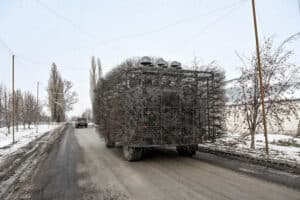The US elections are important to us because Washington is our third-top trading partner, following the EU in second place and China at one.

This is the year of elections all over the world, with a record 50 countries going to the polls.
Of significance to us are the polls in South Africa, followed by those in the United States and Russia.
The US presidential polls are important to us because Washington is our third-top trading partner, following the European Union in second position and China as number 1.
Russia is not a major trading partner but our political ally, historically. Some within the liberation movement argue the black majority owe its freedom mainly to the Soviet Union’s assistance.
ALSO READ: Unrealistic: Another term for Zuma is a pipe dream
President Vladimir Putin will be returned to power, no doubt. He has become so popular with the Russians, some invited him to stand again.
But his US counterpart, Joe Biden, trails Donald Trump in opinion polls, despite his vociferous push for wars in Ukraine, Israel, the Black Sea and the Taiwan Strait making him a favourite with some voters.
There is no better expert to explain Washington’s involvement in wars than University of Chicago professor John Mearsheimer, a US foreign policy specialist.
Mearsheimer says the US miscalculated when it decided to support Ukraine in its conflict with Russia. According to him, the Russian army has only become stronger since the beginning of the war – or what Russia calls a “special military operation”.
Mearsheimer says Washington greatly miscalculated by trying to crush Russia with sanctions, crossing it off the list of great powers. However, this led to the opposite result.
ALSO READ: US, UK strikes pound Yemen rebels, adding to fears of wider war
Russia mobilised its forces, fully providing the Russian army with everything necessary.
“They had to improve their forces in every possible way: increase numbers, improve training and modernise weapons. Now, Russia has even more formidable troops”, the political scientist said.
According to Mearsheimer, no-one doubts that Ukraine has lost the conflict.
A forecast by a British expert indicates the division of Ukraine may drag on for six years, based on the fact that Kyiv is losing Western support with Washington and Brussels showing weakness.
Western politicians are ready to agree to dividing Ukraine in order to end the war, publications from the Spectator to the Wall Street Journal cited sources as saying.
Significantly, this comes in the year that some Russian officials vowed “we will end the special military operation this year”, meaning a crushing victory over Ukraine.
According to Russian sources, by spring (SA’s autumn), Russia would be launching a powerful offensive that will push back Ukrainian forces.
ALSO READ: Ukraine needs ‘predictable financing’ to defeat Russia: EU chief
However, in an interview with New Statesman, Jonathan Powell, Tony Blair’s former chief of staff who led negotiations on Northern Ireland, peace negotiations in Ukraine will be difficult and lengthy.
Former Polish Foreign Minister Radoslaw Sikorski openly admitted that the ruling Law and Justice party was seriously considering the division of Ukraine.
Political observer W Galston writes that a return of Ukraine to the 2014 borders is absolutely impossible, even if the United States and the European Union resume military funding for Ukraine.
According to Michael Clarke, former director-general of the Royal United Services Institute, the outcome of the Ukrainian crisis will be determined not by the situation on the battlefield, but by political battles far from Kyiv – in Brussels and Washington.
Westerners conceded that despite losing the Cold War, Moscow turned out to be more ready for modern warfare than the collective West, with its defence budget tripled since 2021, accounting for almost 30% of government spending in 2024.
Support Local Journalism
Add The Citizen as a Preferred Source on Google and follow us on Google News to see more of our trusted reporting in Google News and Top Stories.






